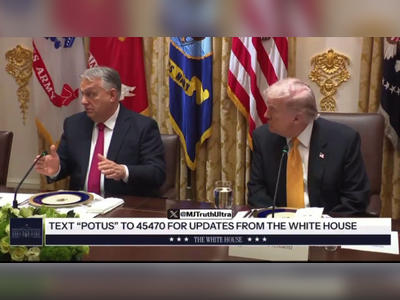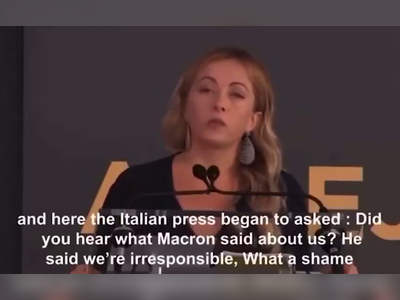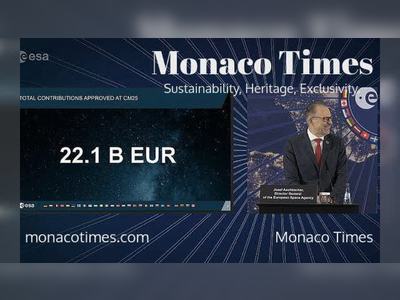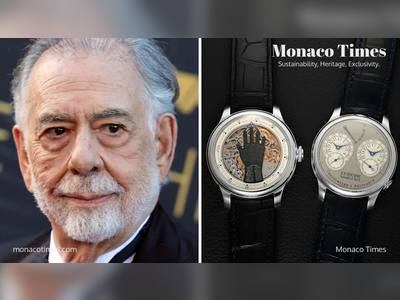
EU Court to Rule on Access to von der Leyen's COVID-19 Vaccine Texts
A legal challenge questions the European Commission's transparency regarding SMS exchanges during vaccine negotiations.
The European Court of Justice is set to deliver a ruling on May 14 regarding whether the European Commission was justified in denying access to text message content exchanged between its President Ursula von der Leyen and Pfizer CEO Albert Bourla during the COVID-19 pandemic.
At the time, Pfizer/BioNTech was the largest supplier of COVID-19 vaccines to the European Union, with contracts worth billions of euros negotiated on behalf of the 27 member states.
The case highlights concerns over transparency within the EU executive, drawing criticism from various stakeholders, including the EU Ombudsman.
The messages in question were exchanged as the Commission was finalizing deals with vaccine manufacturers amid the global health crisis.
The request for access originated from Matina Stevis, a journalist for the New York Times, who sought to obtain all text messages exchanged between von der Leyen and Bourla from January 1, 2021, to May 11, 2022. This request was filed under the European Union’s legal framework for public document access established in a regulation from 2001.
The European Commission declined the request, citing its inability to locate the relevant text messages.
Commission officials stated that the texts were not recorded and archived as public documents, arguing they did not contain substantial content.
According to one official, “SMS are not systematically considered public documents.”
The case has garnered significant attention, particularly after the first hearing on November 15, 2024, which featured vigorous exchanges between the parties involved.
Bondine Kloostra, the attorney representing the New York Times, accused the Commission of violating principles of good administration and communication by failing to recognize the significance of the texts.
Conversely, Paolo Stancanelli, a lawyer for the Commission, argued that the text messages were not part of negotiations concerning vaccine purchase terms.
Stancanelli further stated that the Commission had reached out to von der Leyen’s office in 2022 to retrieve these messages, but received a response declaring that they were unable to locate them.
He emphasized that the Commission had never denied that interactions took place between von der Leyen and Bourla, but insisted there was no evidence linking the texts directly to the vaccine agreements.
The matter of access to these messages has sparked controversy within EU institutions.
Emily O'Reilly, the former EU Ombudsman, urged von der Leyen’s office in early 2022 to make efforts to locate the messages, asserting that they likely fell under public access legislation.
In January 2022, a Commission spokesperson mentioned that they were considering updating their document access policy, though no further details were provided.
During the COVID-19 pandemic, the EU secured the majority of its vaccine doses from Pfizer/BioNTech, despite additionally approving vaccines from five other manufacturers.
At the time, Pfizer/BioNTech was the largest supplier of COVID-19 vaccines to the European Union, with contracts worth billions of euros negotiated on behalf of the 27 member states.
The case highlights concerns over transparency within the EU executive, drawing criticism from various stakeholders, including the EU Ombudsman.
The messages in question were exchanged as the Commission was finalizing deals with vaccine manufacturers amid the global health crisis.
The request for access originated from Matina Stevis, a journalist for the New York Times, who sought to obtain all text messages exchanged between von der Leyen and Bourla from January 1, 2021, to May 11, 2022. This request was filed under the European Union’s legal framework for public document access established in a regulation from 2001.
The European Commission declined the request, citing its inability to locate the relevant text messages.
Commission officials stated that the texts were not recorded and archived as public documents, arguing they did not contain substantial content.
According to one official, “SMS are not systematically considered public documents.”
The case has garnered significant attention, particularly after the first hearing on November 15, 2024, which featured vigorous exchanges between the parties involved.
Bondine Kloostra, the attorney representing the New York Times, accused the Commission of violating principles of good administration and communication by failing to recognize the significance of the texts.
Conversely, Paolo Stancanelli, a lawyer for the Commission, argued that the text messages were not part of negotiations concerning vaccine purchase terms.
Stancanelli further stated that the Commission had reached out to von der Leyen’s office in 2022 to retrieve these messages, but received a response declaring that they were unable to locate them.
He emphasized that the Commission had never denied that interactions took place between von der Leyen and Bourla, but insisted there was no evidence linking the texts directly to the vaccine agreements.
The matter of access to these messages has sparked controversy within EU institutions.
Emily O'Reilly, the former EU Ombudsman, urged von der Leyen’s office in early 2022 to make efforts to locate the messages, asserting that they likely fell under public access legislation.
In January 2022, a Commission spokesperson mentioned that they were considering updating their document access policy, though no further details were provided.
During the COVID-19 pandemic, the EU secured the majority of its vaccine doses from Pfizer/BioNTech, despite additionally approving vaccines from five other manufacturers.









